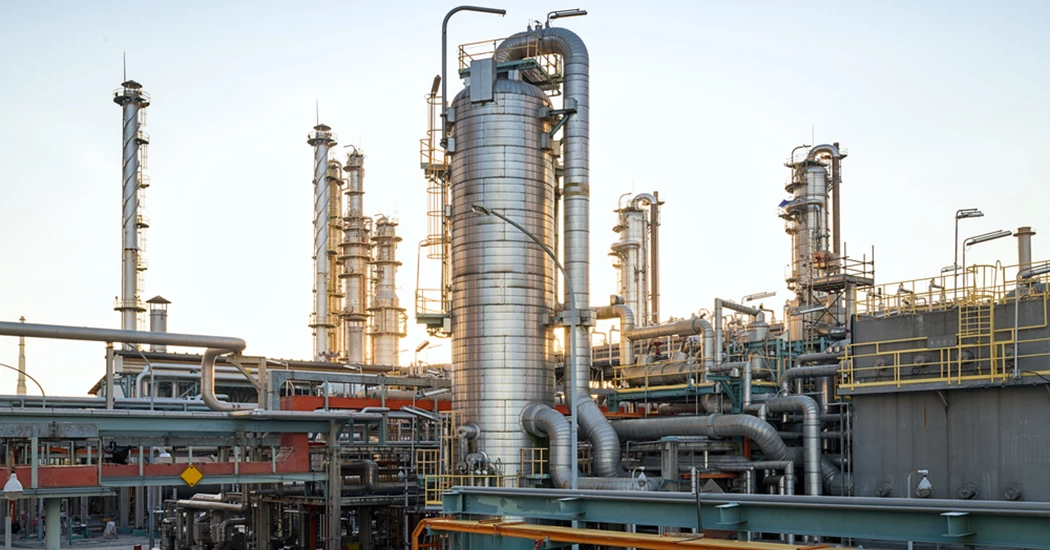Revitalisation of African refinery sector: new capacities signal growth, new Hawilti report reveals
Following years of stagnation in Africa's refinery sector, a resurgence is underway with significant capacity expansions attributed to key projects such as the Dangote Refinery in Nigeria, Sentuo Oil Refinery in Ghana, and the forthcoming Cabinda Refinery in Angola. This rejuvenation marks a pivotal moment in the region's energy landscape, promising enhanced energy security and economic growth, just as petroleum products imports reached an all-time high of 2.5 million barrels per day (bpd) last year.
West Africa witnesses significant capacity growth
The commissioning of the Dangote Refinery, one of the largest single-train refineries globally, is slowly becoming a game-changer for Nigeria and the continent. With a refining capacity of 650,000 bpd, it can not only address Nigeria's domestic fuel demand but also position the country as a major player in the regional and global supply of petroleum products.
Similarly, the commissioning of the Sentuo Oil Refinery in Ghana earlier this year further added to West Africa’s refining capacity, bringing a much-needed relief to Ghana’s energy independence after imports bills reached several billion US dollars in recent years.
The region will continue to lead refinery activity in Sub-Saharan Africa in the near future, with several modular refineries currently under expansion and in development in the sub-region. Large projects are also making progress, notably with the signing in April of a share subscription agreement between NNPC’s Port Harcourt Refining Company (PHRC) and African Refinery Port Harcourt Ltd (ARPHL) for the co-location of a 100,000 bpd capacity refinery in Nigeria.
"This wave of refinery developments represents a transformative shift for Africa," Souheil Abboud, Managing Director at VFuels LLC, said. "More importantly, we are witnessing continued appetite for modular projects across West Africa which could sustain capacity growth in the short and medium terms."
Southern Africa maintains high hopes
Looking ahead, the Cabinda Refinery in Angola is poised to further amplify current market momentum. Scheduled for commissioning later in 2024, this refinery will significantly augment Angola's refining capacity, reducing dependency on imported fuels and fostering local economic development. Progress continues to be made on the project, with the Kerosene Sweetening Unit completing its Factory Acceptance Test (FAT) a few months ago.
In South Africa, the sale of the 180,000 bpd SAPREF Refinery by bp and Shell to the state-owned Central Energy Fund (CEF) could provide a necessary boost to restart operations there. The facility was severely damaged by floods in March 2022 and has been inoperative ever since.
Benefits of building new facilities and upgrading existing infrastructure extend beyond economic gains. By reducing reliance on imported fuels and adopting new operational norms, these refineries are expected to enhance energy security across the continent, stabilising local markets and ensuring a more sustainable energy future.
However, current market conditions call for cautious optimism as refinery owners and developers must navigate challenging operational and financial environments. Access to capital remains a barrier – as demonstrated by delays in the Albertine Graben Refinery in Uganda and the Soyo Refinery in Angola – while securing crude oil feedstock is proving difficult even in large oil producing markets.
Energy Connects includes information by a variety of sources, such as contributing experts, external journalists and comments from attendees of our events, which may contain personal opinion of others. All opinions expressed are solely the views of the author(s) and do not necessarily reflect the opinions of Energy Connects, dmg events, its parent company DMGT or any affiliates of the same.
KEEPING THE ENERGY INDUSTRY CONNECTED
Subscribe to our newsletter and get the best of Energy Connects directly to your inbox each week.
By subscribing, you agree to the processing of your personal data by dmg events as described in the Privacy Policy.
















